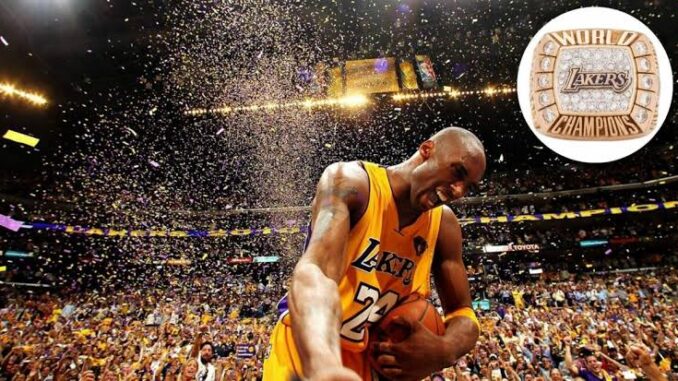
- Throughout his legendary career, Kobe Bryant earned five NBA championships. Yet some critics — in jest or earnest — have quipped that certain Lakers titles, especially the ones in 2009 and 2010, came despite weak supporting casts. Let’s unpack this claim, with context and expert perspectives.
1. Alpha Mentality vs. Team Reality
Kobe was, by reputation, a hyper‑competitive “Mamba” who demanded that teammates match his intensity or face consequences. Former Lakers point guard Lou Williams recalled that when Kobe returned healthy later in his career, “the environment changed… He just came in and it was like alright order in the court.” He even “told the young guys when I’m in the front office next year, I’m trading all you motherf**kers.”Williams also shared that Kobe wouldn’t let slackers wear his signature shoes—showing how seriously he guarded standards .
Phil Handy, a Lakers assistant, offered even more insight, quoting Kobe as saying:
“If I don’t respect their work ethic… I’m not going to pass them the basketball.”
This lens shows Kobe’s “take‑no‑prisoners” ethos arguably alienated him from teammates — but also reveals why he was able to consistently carry teams that maybe lacked star power.
2. The 2009–10 Lakers: Critics vs. Context
Labeling the 2009 and 2010 teams as “bum squads” misses key strengths. In 2009, Kobe’s Lakers finished a dominant 65–17 regular season and beat the Orlando Magic, with Kobe averaging 32.4 points per game and earning Finals MVP honors
Their 2010 run was even more remarkable. The Lakers overcame a 3‑2 deficit in the Finals to beat the Celtics, with Kobe capturing his second straight Finals MVP . Yet commenters frequently note supporting players like Pau Gasol, Lamar Odom, and Derek Fisher weren’t top‑tier stars—with Gasol often cited as the only reliable second option .
Still, Pau’s impact was undeniable — experts point to him as Kobe’s most effective teammate, crucial in delivering those rings. Fisher’s timely contributions and veteran presence were also pivotal
3. Teammate Feedback: Love, Beef, or Respect?
Kobe’s personal relationships with teammates were famously polarizing:
-
Shaquille O’Neal: The dominant duo won three consecutive titles (2000–2002). Yet friction grew — Phil Jackson labelled Kobe a “juvenile narcissist,” and locker room dissent peaked with teammates blaming Kobe’s selfish play
-
Pau Gasol described Kobe’s mentorship as transformative: “Kobe wants you to be the best,” quoted on r/nbareddit
-
Later teammates — from Derek Fisher to Lamar Odom and Metta World Peace — thrived in those final two championship seasons
This blend of tough love and elite performance reveals the duality: Kobe often demanded the best and was sometimes difficult to play with — but many teammates came out stronger.
4. Was He Really Carrying “Bum Squads”?
Redditors and fans have weighed in. One user commented:
“Some of that was kinda justified… he literally dragged [genuinely trash players] to the playoffs… But really can’t argue with the results.”
Another praised how Lynd-paced teams of 2008–2010 faced 50+ win opponents in every playoff round, yet still made three Finals and won two championships
Ultimately, critics who say he “grabbed two chips with bum squads” overlook the grit required: fewer stars, injuries, and tough matchups — and yet Kobe propelled those Lakers not just to contender status, but to rings.
🔍 Editorial Wrap-Up
-
Kobe’s leadership style was combative and demanding, but effective — he elevated both the game and mindset of many teammates.
-
The 2009 & 2010 Lakers, while lacking superstar depth, had strong cores in Gasol, Fisher, Odom, and role players who delivered at critical moments.
-
Kobe’s Finals pedigree, including two straight Finals MVPs, supports the assertion that he carried these teams — but “bum squad” is overly dismissive of the collective effort involved.
-
Conclusion: Calling it all Kobe is reductive. Yes, he did heavy lifting — but he also played alongside key players and overcame formidable opposition to win championships.
Leave a Reply